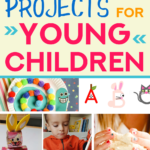How Friends Become Family: Building Chosen Bonds for Life

Introduction: When Friends Become Family
In today’s world, the traditional idea of family has expanded beyond biological ties. For many, the richest relationships are not determined by blood, but by choice-when friends become family. This transformation, sometimes called “chosen family,” is a powerful shift that can bring lifelong support, understanding, and resilience. But how does this happen, why is it important, and what steps can you take to nurture these invaluable connections?

Source: flickr.com
The Foundation: Trust and Emotional Safety
Transitioning from friendship to family starts with deep trust . True friends are those with whom you can share your joys, struggles, and vulnerabilities-without fear of judgment. This level of openness creates an emotional safety net, much like what is found in healthy families. Research shows that such connections rarely involve jealousy, resentment, or guilt. Instead, there’s a consistent desire for each other’s well-being and a willingness to work through conflicts together [2] .
Establishing and maintaining trust requires time and intentionality. Start by:
- Being reliable-show up when it matters, not just for fun moments but during hardships as well.
- Practicing active listening, offering empathy rather than solutions when someone needs to talk.
- Respecting boundaries and allowing space for honesty about emotions and needs.
Remember, the choice to treat a friend as family is a conscious act. This choice can be more powerful than any biological bond because it’s rooted in mutual respect and love [1] .
Shared Experiences: Building a History Together
One way friendships deepen into familial bonds is through shared experiences. Celebrating milestones, supporting each other during losses, or simply spending time together creates a tapestry of meaningful memories. These moments become the foundation for a chosen family dynamic [1] .
Consider these actionable steps to deepen your connections:
- Host regular gatherings-dinners, celebrations, or even game nights-to create traditions.
- Be present during important life events, such as graduations, moves, or times of illness.
- Create rituals that are unique to your group, like annual trips or shared creative projects.
Over time, these shared experiences can blur the lines between friend and family, leading to relationships characterized by mutual investment and unconditional support.
Mutual Support: The Heart of Chosen Family
Chosen family relationships are defined by mutual support . Unlike some traditional family dynamics, support in chosen families is often reciprocal and freely given. Friends who become family are there through successes and failures, offering a shoulder to lean on and celebrating each other’s achievements [4] .
This support can manifest in many ways:
- Providing emotional encouragement during tough times
- Helping with practical needs, such as moving homes or childcare
- Offering advice based on a deep understanding of each other’s values and history
It’s important to communicate openly about needs and boundaries to ensure that this support remains healthy and sustainable for everyone involved.
The Benefits: Health, Resilience, and Well-Being
Research demonstrates significant benefits to having a strong chosen family. People with robust friendship networks experience improved mental and physical health, greater resilience to stress, and even increased longevity. For instance, Stanford University researchers found that close social connections can increase life expectancy by up to 50% [2] . The Centers for Disease Control and Prevention (CDC) also reports that such ties reduce the risk of anxiety and depression, improve sleep, and enhance overall quality of life.
In practical terms, this means that nurturing your chosen family can have a profound impact on your well-being. Consider prioritizing time for these relationships and seeking support from them during challenges-just as you would with relatives.
Challenges and How to Navigate Them
As with any relationship, chosen family bonds can face challenges. Differences in expectations, changing life circumstances, or personal growth can create friction. Common issues include:
- Unbalanced support, where one person feels they are giving more than they receive
- Misunderstandings about boundaries or personal needs
- Drifting apart due to life changes, such as moving or new relationships
To overcome these challenges:
- Hold regular, honest conversations about your relationship and any concerns
- Revisit and adjust boundaries as needed
- Show appreciation for each other, reinforcing the value of your bond
Sometimes, seeking support from a counselor or mediator can help resolve deeper conflicts [2] .
Alternative Paths: Expanding Your Definition of Family
Family doesn’t have to be limited to friends or blood relatives. Many people create supportive networks through communities, faith groups, or shared-interest organizations. For example, some find their “framily” in religious congregations, support groups, or volunteer teams [4] . These communities often offer the same support, understanding, and belonging found in close friendships.
To grow your support network, you can:
- Join local clubs or groups aligned with your interests
- Volunteer for causes you care about, building connections through shared purpose
- Participate in support groups, both in-person and online, for those facing similar life circumstances
It’s also possible to nurture existing relationships with extended family or colleagues, intentionally fostering deeper bonds over time.
Creating and Sustaining Your Chosen Family: Steps and Best Practices
If you want to build or strengthen your chosen family, consider these actionable steps:
- Identify the people in your life who already provide deep support and understanding.
- Initiate conversations about the importance of your relationship and your desire to treat each other as family.
- Invest time and energy in maintaining these bonds. This can include regular check-ins, shared traditions, and offering help during challenges.
- Be open to expanding your chosen family as new friendships develop over time.
- Celebrate important milestones together-birthdays, holidays, or personal achievements-to reinforce your connection.
Remember, sustaining these relationships requires ongoing effort, mutual respect, and adaptability as life changes.

Source: flickr.com
Accessing Support and Resources
If you are seeking additional support, there are many ways to find community and build new connections:
- Contact local community centers, religious organizations, or social clubs to find groups aligned with your interests.
- Use reputable counseling platforms to find guidance on building healthy relationships. Many platforms provide directories of licensed therapists who specialize in friendship and family dynamics.
- Search for “support groups for chosen family” or “friendship support networks” in your area through established organizations and mental health directories.
- If you need immediate emotional support, consider reaching out to national helplines or local mental health organizations for assistance.
For official information on mental health and well-being, you can visit the Centers for Disease Control and Prevention (CDC) website and search for “social connections and health.” The CDC provides evidence-based resources on the health benefits of social relationships.
Summary: The Power of Chosen Family
When friends become family, the impact is transformative. These bonds offer emotional safety, shared history, practical support, and measurable health benefits. By intentionally nurturing these relationships and expanding your social circles, you can create a network that sustains you through life’s challenges and joys. The journey is ongoing, but the rewards-a sense of belonging, resilience, and fulfillment-are worth every step.
References
- [1] The Rising Muse (2024). When a Friend Becomes Family: The Beautiful Transformation.
- [2] BetterHelp (2025). Friends That Become Family: Chosen Family As A Support System.
- [3] National Institutes of Health (2024). Interdependencies Between Family and Friends in Daily Life.
- [4] Faith and Leadership (2023). When friends become family.
- [5] Psychology Today (2023). Friends Are the New Family.






